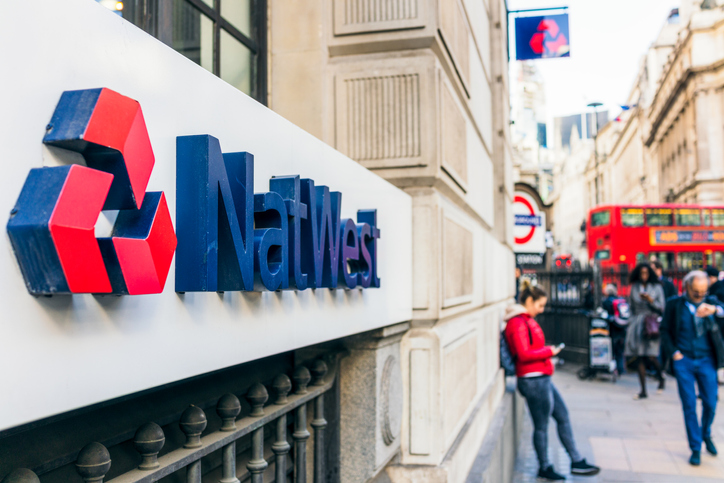ii view: is NatWest now in better shape than rivals?
Covid has hurt, but the capital cushion is up again, and 2020 bad debt estimates are lower than others.
14th August 2020 10:20
by Keith Bowman from interactive investor
Covid has hurt, but the capital cushion is up again, and 2020 bad debt estimates are lower than others.

First-half results to 30 June 2020
- Bad debt provision of £2.9 billion
- Loss of £770 million, down from a profit of £2.7 billion
- Capital cushion (CET1) of 17.2%, up 0.6%
- Previously announced – no dividend payment
Guidance:
- Full-year 2020 impairment charge likely to be in the range of £3.5 to £4.5 billion
Chief executive Alison Rose said:
"Our performance in the first half of the year has been significantly impacted by the challenges and uncertainty our economy continues to face as a result of Covid-19. However, NatWest Group has a robust capital position, underpinned by a resilient, capital generative and well diversified business.
"Through our strong balance sheet and prudent approach to risk, we are well placed not only to withstand Covid-19 related impacts but also to provide the right support to those who will need it most in the tough times to come."
ii round-up:
The bank has changed its name to NatWest Group (LSE:NWG) from the previous Royal Bank of Scotland (RBS).
Serving more than 18 million customers on a global basis, its brands include NatWest itself, Royal Bank of Scotland, Ulster Bank, Child & Co, Drummonds and Coutts.
In September, the bank appointed new chief executive Alison Rose.
She was formerly the deputy CEO of NatWest Holdings and CEO of Commercial and Private Banking.
For a round-up of these half-year results, please click here.
ii view:
In 2018, and 10 years on from the height of the financial crisis, RBS passed the Bank of England’s stress tests. The bank’s journey through and out of the financial crisis has few rivals. Following fines and settlements already made for the bank’s part in the US mortgage securities crisis, provisions to cover the mis-selling of Payment Protection Insurance (PPI) then followed.
Now, just as the renamed NatWest Group appeared to be emerging into the clear, the Covid-19 pandemic has caused a huge shutdown of businesses, requiring more provisions to offset likely bad debts and again hitting profits. Ongoing virus disruption may result in full year bad debt provisions of an estimated £4.5 billion. Lloyds (LSE:LLOY) is estimating up to £5.5 billion, HSBC (LSE:HSBA) up to £10 billion.
That said, NatWest’s painfully slow climb back to better health does still appear to broadly underlie current events. A new CEO should help to reenergise its recovery. The capital cushion has been bolstered to 17.2% - Lloyds is currently 14.6%, HSBC 15.1% - and management continues to try and get to grips with the demands of its investment bank NatWest Markets on group returns. In all, while Covid-19, Brexit and the overhang from the government’s still significant share stake all need to be remembered, rays of light at the end of the tunnel remain evident.
Positives
- A cost saving target of £250 million
- Capital cushion is one of the highest in the sector
Negatives
- Covid uncertainty overhangs potentially raising bad debt provisions
- Dividend payment suspended
The average rating of stock market analysts:
Buy
These articles are provided for information purposes only. Occasionally, an opinion about whether to buy or sell a specific investment may be provided by third parties. The content is not intended to be a personal recommendation to buy or sell any financial instrument or product, or to adopt any investment strategy as it is not provided based on an assessment of your investing knowledge and experience, your financial situation or your investment objectives. The value of your investments, and the income derived from them, may go down as well as up. You may not get back all the money that you invest. The investments referred to in this article may not be suitable for all investors, and if in doubt, an investor should seek advice from a qualified investment adviser.
Full performance can be found on the company or index summary page on the interactive investor website. Simply click on the company's or index name highlighted in the article.